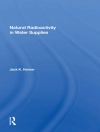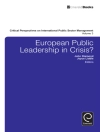It is a cliché that China is the world’s manufactured goods factory, but most observers are just as certain that China’s farmers are a serious burden on growth. Yet China in fact has the makings of an internationally competitive agricultural sector, with the market setting most prices, farmers shifting quickly toward what they produce best, and significant research and development focused on biotechnology and other promising areas. China’s trade interests are changing as its farmers become more competitive, and this transformation will have major implications for world trade talks and global economic welfare. This study traces the steps China has taken to make agriculture a winning sector, the evidence that its initiatives are working, and the course the country is likely to take.
लेखक के बारे में
Daniel H. Rosen was a visiting fellow at the Peterson Institute for International Economics. Rosen is a principal at the Rhodium Group, a New York-based research firm. He is also an adjunct professor at Columbia University’s School of International and Public Affairs (2001–present). Rosen was a member of the National Economic Council staff (2000–01), where he served as senior adviser for international economic policy. His work has focused on the economic development of East Asia, particularly greater China, and US economic relations with the region. He is author or coauthor of The Implications of China-Taiwan Economic Relations (2011), Prospects for a US-Taiwan Free Trade Agreement (2004), The New Economy and APEC (2002), Behind the Open Door: Foreign Enterprises in the Chinese Marketplace (1999), and Powering China (1995).Scott Rozelle is a professor in the Department of Agricultural and Resource Economics, University of California, Davis, and the Chancellor’s Fellow at the university (2000-05). He is codirector of the Center for the Rural Economy of the Americas and Pacific. He is the chair of the International Advisory Board of the Center for Chinese Agricultural Policy.Jikun Huang has been the director of the Center for Chinese Agricultural Policy (CCAP) at the Chinese Academy of Sciences in Beijing since 2000.












